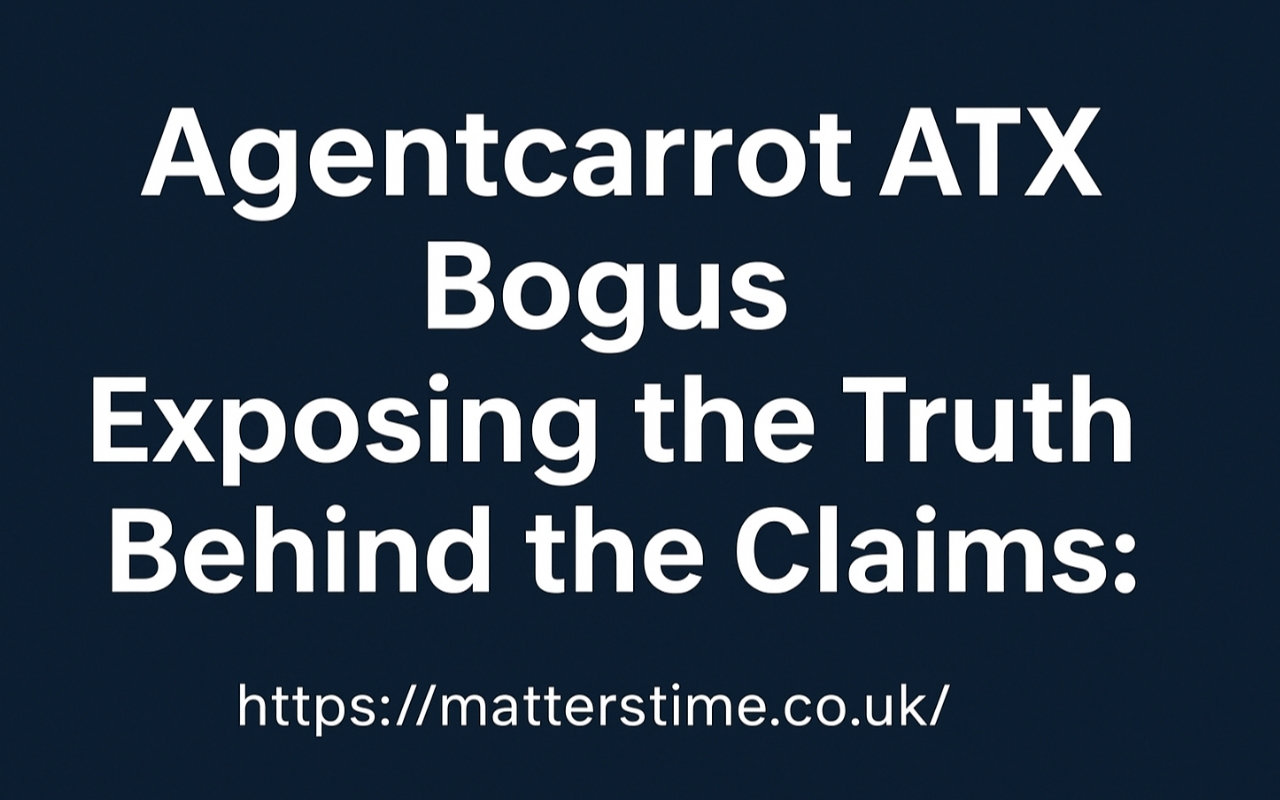Agentcarrot ATX Bogus: Exposing the Truth Behind the Claims
The internet has become a battleground of information, where news, rumors, and personal opinions spread faster than ever before. Among the countless discussions and controversies, one that has recently caught the attention of online communities is the so-called “Agentcarrot ATX Bogus” debate. But what exactly does this phrase mean? Where did it originate? And, most importantly, is there any truth to the claims surrounding it?
In this in-depth investigation, we’ll explore the origins of the Agentcarrot ATX Bogus controversy, analyze the evidence presented, and separate fact from fiction. Whether you’ve stumbled upon this term through social media chatter, forum threads, or word-of-mouth, this guide will help you understand the full picture.
Understanding the Term “Agentcarrot ATX Bogus”
To start, we need to break down the term itself. “Agentcarrot” appears to be an alias or screen name associated with a specific individual or entity, while “ATX” is commonly used as an abbreviation for Austin, Texas. The word “bogus” immediately signals that accusations or skepticism are involved.
Put together, Agentcarrot ATX Bogus essentially refers to a claim or controversy alleging that a person or business operating under the “Agentcarrot” name in the Austin area is engaging in fraudulent, misleading, or questionable activities. However, as with any online rumor, it’s essential to approach the topic with skepticism until concrete evidence is presented.
The Origins of the Controversy
Every viral term or accusation has a starting point, and the Agentcarrot ATX Bogus narrative is no different. Based on archived discussions and cached web pages, the first mentions of the phrase began appearing in small, niche online forums before spreading to larger platforms like Reddit and Facebook groups dedicated to consumer awareness.
Some of these early discussions seemed to stem from dissatisfaction with a service or product allegedly tied to Agentcarrot. Others appeared to be driven by competitive motives, attempting to discredit the name in public spaces. As these posts gained traction, the controversy snowballed, attracting attention from people who had never interacted with Agentcarrot but were eager to join the debate.
The Role of Social Media in Amplifying the Claims
One of the biggest reasons why the Agentcarrot ATX Bogus discussion gained momentum was the power of social media algorithms. Platforms like Twitter (now X), Instagram, and TikTok prioritize trending content, which means that once a few posts mentioning “Agentcarrot ATX Bogus” started gaining likes and shares, the term quickly became more visible.
Social media thrives on short, emotionally charged statements — a perfect breeding ground for unverified claims. Without context, posts alleging that “Agentcarrot is bogus” were easily misinterpreted as fact rather than opinion. Unfortunately, this is how many online reputations are damaged, regardless of whether the allegations have any factual basis.
Investigating the Evidence: Fact vs. Fiction
When assessing whether the Agentcarrot ATX Bogus claims hold any weight, it’s critical to separate verified information from hearsay. In this case, much of what circulates online consists of anecdotal experiences, screenshots without context, or statements from anonymous accounts.
Some claims cite dissatisfaction with services, delays in delivery, or unresponsiveness to customer inquiries. Others go further, accusing Agentcarrot of intentional deception. However, in most cases, there is little to no verifiable documentation to support these allegations. The absence of concrete evidence makes it difficult to confirm whether the accusations stem from legitimate grievances or are part of an orchestrated smear campaign.
How Online Reputation Can Be Destroyed Overnight
The Agentcarrot ATX Bogus saga serves as a case study in the fragility of online reputations. Even if the claims are untrue, the damage to public perception can be severe and long-lasting.
When a person or brand is labeled as “bogus” in viral posts, search engines begin associating their name with negative keywords. Potential clients, customers, or collaborators who search for the name may see these allegations first, leading to mistrust before any real interaction occurs. In some cases, even a well-crafted rebuttal or legal action may not be enough to erase the stigma.
The Importance of Verifying Sources Before Believing Claims
In today’s digital age, misinformation spreads as easily as truth. That’s why it’s vital for individuals to verify sources before forming an opinion on matters like Agentcarrot ATX Bogus. Reliable sources include official statements, public records, and firsthand accounts that can be cross-checked for accuracy.
Unfortunately, many people base their opinions on hearsay or sensationalized social media posts without ever digging deeper. This lack of due diligence fuels cancel culture and unjustified online shaming.
Potential Legal Implications of False Accusations
If the Agentcarrot ATX Bogus claims turn out to be baseless, there could be legal consequences for those spreading them. Defamation laws vary by jurisdiction, but in many places, making false statements that harm someone’s reputation can lead to lawsuits.
Defamation cases typically require proof that:
- The statements made were false.
- They caused reputational harm.
- They were made negligently or with malicious intent.
Public accusations without evidence may seem harmless to the person posting them, but they can result in real-world consequences for both the accuser and the accused.
Strategies for Rebuilding an Online Reputation
If Agentcarrot or anyone facing similar allegations wants to recover from the bogus label, a clear strategy is needed. Some proven methods include:
- Publishing a Transparent Statement: Addressing the claims openly, providing facts, and offering evidence where possible.
- Leveraging Positive Testimonials: Encouraging satisfied customers or clients to share their experiences.
- SEO Reputation Management: Creating high-quality, positive content to push negative search results lower in rankings.
- Engaging in Community Outreach: Building goodwill by contributing positively to the community.
While repairing an online reputation can be a long process, it is possible with consistent effort.
Lessons Learned from the Agentcarrot ATX Bogus Case
Whether or not the allegations hold merit, the Agentcarrot ATX Bogus story is a reminder that in the digital era, perception often becomes reality. A single accusation can spiral into a viral narrative, and once the internet takes hold of a story, it’s nearly impossible to fully control the outcome.
The takeaway is simple: always investigate before sharing, and remember that behind every username or business name is a real person whose life can be deeply impacted by public opinion.
Conclusion: The Truth Lies Beyond the Headlines
The phrase “Agentcarrot ATX Bogus” has taken on a life of its own in online spaces, fueled by social media buzz and unverified claims. While it’s natural for people to discuss and speculate, responsible digital citizenship requires us to question sources, demand evidence, and avoid jumping to conclusions.
At this point, the truth behind the controversy remains murky. Without concrete evidence, it’s impossible to definitively label the claims as true or false. What’s clear, however, is that the internet’s power to amplify both truth and lies makes it more important than ever to approach such matters with a critical mind.







